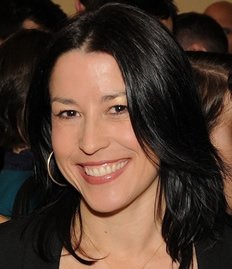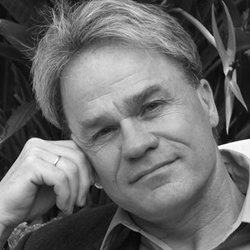SU’s Ray Smith Symposium focuses on Latino/a “Homeland” Nov. 8-9
Scholars Arlene Dávila and James Green shed light on Latin American, Caribbean displacement

“Displacement” is the theme of one of two yearlong Ray Smith symposia, sponsored by Syracuse University’s College of Arts and Sciences.
Titled “Moving Borders: The Culture and Politics of Displacement in and from Latin America and the Caribbean,” the symposium continues Nov. 8-9 with events pertaining to issues of “Homeland.” (Other themes throughout the year are “Borders,” “Citizenship,” and “Movement.”) Everything is free and open to the public, but some events require pre-registration. For more information, contact Elane Granger Carrasco, associate director of the Slutzker Center for International Services, at 315-443-2457.
“Changes in global conditions have caused mass migrations of people,” says Sydney Hutchinson, assistant professor of art and music histories, who is co-organizing the symposium with Granger and a team of nine other faculty members. “These migrations have sparked intense debates over questions of identity, politics, economic policy, and immigration. ’Moving Borders’ seeks to explore these issues through various perspectives and forms of representation, including film, music, dance, and literature.”
Myrna García-Calderón and Gladys McCormick—professors of Spanish and history, respectively—organized the “Homeland” programming.
“Our guest speakers are leading scholars of modern Latin America,” says García-Calderón, also director of the Latino-Latin American Studies Program. “Arlene Dávila’s primary focus is on the Latino experience in the United States and how it is captured in the media. James Green is an expert in modern Brazilian history, and has explored intersections among politics, identity, and sexuality during some of the country's most tumultuous times.”
The “Homeland” schedule is as follows:
Keynote Lecture I: “Culture Works: On the Trials of Building a National Latino/a Museum”
Arlene Dávila, professor of anthropology and of social and cultural analysis at New York University
Thursday, Nov. 8, at 6 p.m.
Maxwell Auditorium
Keynote Lecture II: “Exiles Within Exiles: Herbert Daniel, Gay Brazilian Revolutionary”
James Green, professor of history and Brazilian Studies at Brown University
Friday, Nov. 9, at 10 a.m.
Eggers Hall (220)
Mini-Seminar: Arlene Dávila and James Green
Friday, Nov. 9, at 2:30 p.m.
Maxwell Hall (204)
RSVP at mygarcia@syr.edu
Exhibition Opening and Reception: “Angels on the Border”
Friday, Nov. 9, at 6 p.m.
La Casita Cultural Center (109 Otisco St., Syracuse)
Arlene Dávila studies race and ethnicity, nationalism, media studies, political economy, globalization, the politics of museum and visual representation, urban studies, consumption, and Latinos in the United States. A prolific scholar, she is the author of a half-dozen books, including “Culture Works: Space, Value, and Mobility Across the Neoliberal Americas,” (NYU Press, 2012), which examines the politics of space, value, and mobility throughout the Americas; and “Latino Spin: Public Image and the Whitewashing of Race (NYU Press, 2008),” winner of the Latin American Study Association (LASA)’s Latino Studies Section Book Award.
James Green examines the political, social, and cultural histories of 19th- and 20th-century Brazil. He has written or edited nearly a dozen books, including “We Cannot Remain Silent”: Opposition to the Brazilian Military Dictatorship in the United States, 1964-85” (Duke University, 2010), whose Portuguese translation was recognized by LASA; and “Beyond Carnival: Male Homosexuality in Twentieth-Century Brazil” (The University of Chicago Press, 1999). He is currently working on a biography of the late Brazilian gay revolutionary, Herbert Daniel.
Titled “Moving Borders: The Culture and Politics of Displacement in and from Latin America and the Caribbean,” the symposium continues Nov. 8-9 with events pertaining to issues of “Homeland.” (Other themes throughout the year are “Borders,” “Citizenship,” and “Movement.”) Everything is free and open to the public, but some events require pre-registration. For more information, contact Elane Granger Carrasco, associate director of the Slutzker Center for International Services, at 315-443-2457.
“Changes in global conditions have caused mass migrations of people,” says Sydney Hutchinson, assistant professor of art and music histories, who is co-organizing the symposium with Granger and a team of nine other faculty members. “These migrations have sparked intense debates over questions of identity, politics, economic policy, and immigration. ’Moving Borders’ seeks to explore these issues through various perspectives and forms of representation, including film, music, dance, and literature.”
Myrna García-Calderón and Gladys McCormick—professors of Spanish and history, respectively—organized the “Homeland” programming.
“Our guest speakers are leading scholars of modern Latin America,” says García-Calderón, also director of the Latino-Latin American Studies Program. “Arlene Dávila’s primary focus is on the Latino experience in the United States and how it is captured in the media. James Green is an expert in modern Brazilian history, and has explored intersections among politics, identity, and sexuality during some of the country's most tumultuous times.”
The “Homeland” schedule is as follows:
Keynote Lecture I: “Culture Works: On the Trials of Building a National Latino/a Museum”
Arlene Dávila, professor of anthropology and of social and cultural analysis at New York University
Thursday, Nov. 8, at 6 p.m.
Maxwell Auditorium
Keynote Lecture II: “Exiles Within Exiles: Herbert Daniel, Gay Brazilian Revolutionary”
James Green, professor of history and Brazilian Studies at Brown University
Friday, Nov. 9, at 10 a.m.
Eggers Hall (220)
Mini-Seminar: Arlene Dávila and James Green
Friday, Nov. 9, at 2:30 p.m.
Maxwell Hall (204)
RSVP at mygarcia@syr.edu
Exhibition Opening and Reception: “Angels on the Border”
Friday, Nov. 9, at 6 p.m.
La Casita Cultural Center (109 Otisco St., Syracuse)
Arlene Dávila studies race and ethnicity, nationalism, media studies, political economy, globalization, the politics of museum and visual representation, urban studies, consumption, and Latinos in the United States. A prolific scholar, she is the author of a half-dozen books, including “Culture Works: Space, Value, and Mobility Across the Neoliberal Americas,” (NYU Press, 2012), which examines the politics of space, value, and mobility throughout the Americas; and “Latino Spin: Public Image and the Whitewashing of Race (NYU Press, 2008),” winner of the Latin American Study Association (LASA)’s Latino Studies Section Book Award.
James Green examines the political, social, and cultural histories of 19th- and 20th-century Brazil. He has written or edited nearly a dozen books, including “We Cannot Remain Silent”: Opposition to the Brazilian Military Dictatorship in the United States, 1964-85” (Duke University, 2010), whose Portuguese translation was recognized by LASA; and “Beyond Carnival: Male Homosexuality in Twentieth-Century Brazil” (The University of Chicago Press, 1999). He is currently working on a biography of the late Brazilian gay revolutionary, Herbert Daniel.

“Moving Borders” is organized and presented by faculty members of the Program on Latin America and the Caribbean, and is enabled by a major bequest from the estate of Ray W. Smith ’21, administered by The College of Arts and Sciences.
The Special Collections Research Center at SU Library is also presenting a Ray Smith Symposium titled “Positions of Dissent.” More information is available at dissent.syr.edu.
The Ray Smith Symposium Series was established in 1989 as the result of a bequest from the estate of SU alumnus Ray W. Smith '21 to support symposia on topics in the humanities in SU's College of Arts and Sciences. The symposium is named for the Auburn, N.Y. native who, after graduating from SU in 1921, was a highly respected teacher and administrator.
Media Contact
Rob Enslin
